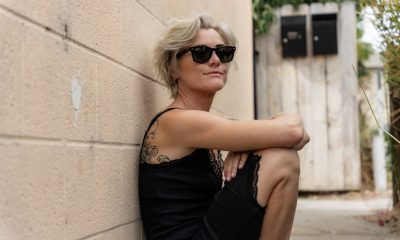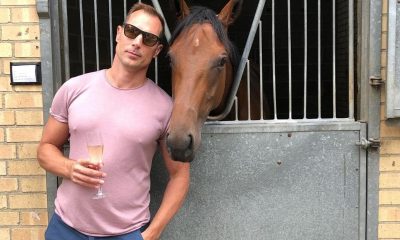Arts & Entertainment
Ricky Martin joins protest against “irresponsibility” of Puerto Rico government, pledges support for earthquake victims
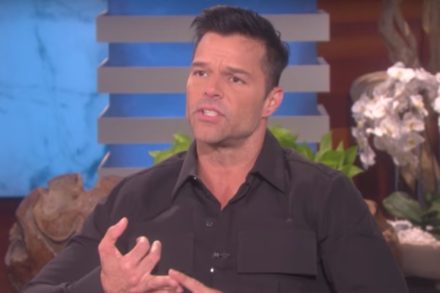
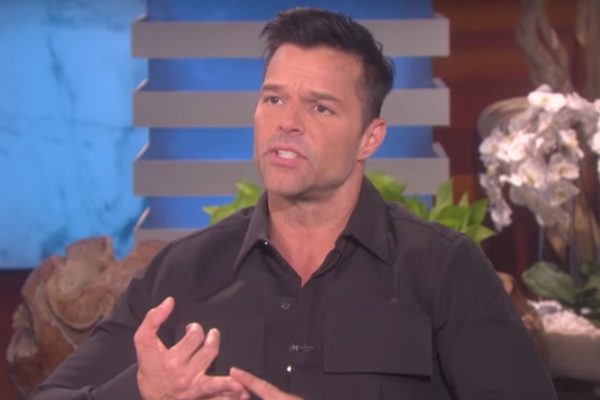
Singer Ricky Martin is taking a stand about what he calls “an act of callousness, mistreatment and sinister irresponsibility” toward his native Puerto Rico.
The pop star took to Instagram on Tuesday to call out government leaders for failing his homeland in the wake of the devastating earthquakes that shook the island earlier this month. His response is specifically focused on the January 18 discovery by locals in the southeastern city of Ponce of a warehouse full of emergency supplies – FEMA pallets of water, generators, Ready Meals, baby diapers and wipes, with some of the perishable items reportedly showing a 2019 expiration date – that have been seemingly withheld since Puerto Rico was hit by Hurricane Maria in 2017.
With thousands of Puerto Ricans are struggling after being displaced in the aftermath of over 300 earthquakes that have struck the island since December 28, the find has led to calls for the resignation of Puerto Rico Governor Wanda Vázquez.
In his Instagram post, the 48-year-old Martin shared a video of volunteers working to bring aid to displaced Puerto Ricans, captioned with a lengthy comment that began, “What happened in a warehouse in Ponce, Puerto Rico is an act of callousness, mistreatment and sinister irresponsibility. In our people’s greatest moments of need, those who assume they are the leaders have failed again. The most basic human rights have once again been absent: water, roof, education, security.”
The out pop icon lamented, “They did it with evil. There is no other explanation,” before going on to say, “But amidst so much outrage and to everyone’s consolation, I see people again, our people, awake, attentive and above all, standing up. Fighting, defending, caring, protecting and gifting love throughout the treasure that is our Puerto Rico.”
He added that he was pledging to join relief efforts alongside local San Juan non-profit organization Sociedad de Educación y Rehabilitación (SER) de Puerto Rico, writing, “In this video, you can see a united people and I from here, am celebrating such a strong and beautiful alliance with our friends from @SERPuertoRico. We join forces to bring well-being to those who need it most in the aftermath of the earthquakes in the south of my land.”
He also indicated his intention to join protestors on the island, saying, “I’m with you. Feeling the pain and firm in defending what is right, that which is worthy for everyone. I am on my way to Puerto Rico. Very soon I will accompany you again in this call for respect, justice and peace. I’ll see you there, my island.”
He concluded by saying, “And to all the volunteers who, without waiting for anything in return, give everything for the well-being of their compatriots, THANK YOU VERY MUCH.”
It’s not the first time the Latin pop superstar has gotten involved in political activism concerning his homeland. Last summer, he joined Puerto Rican celebrities like Lin-Manuel Miranda, Bad Bunny, and PJ Sin Suela at a protest in New York, calling for the resignation of Puerto Rican then-governor Ricardo Rosselló, an issue around which he was also vocal in the media. Rosselló announced his resignation five days later.
Out & About
Drag Underground returns
Indiana Bones, Bombalicious Eklaver, Shi-Queeta Lee, Cake Pop! to perform
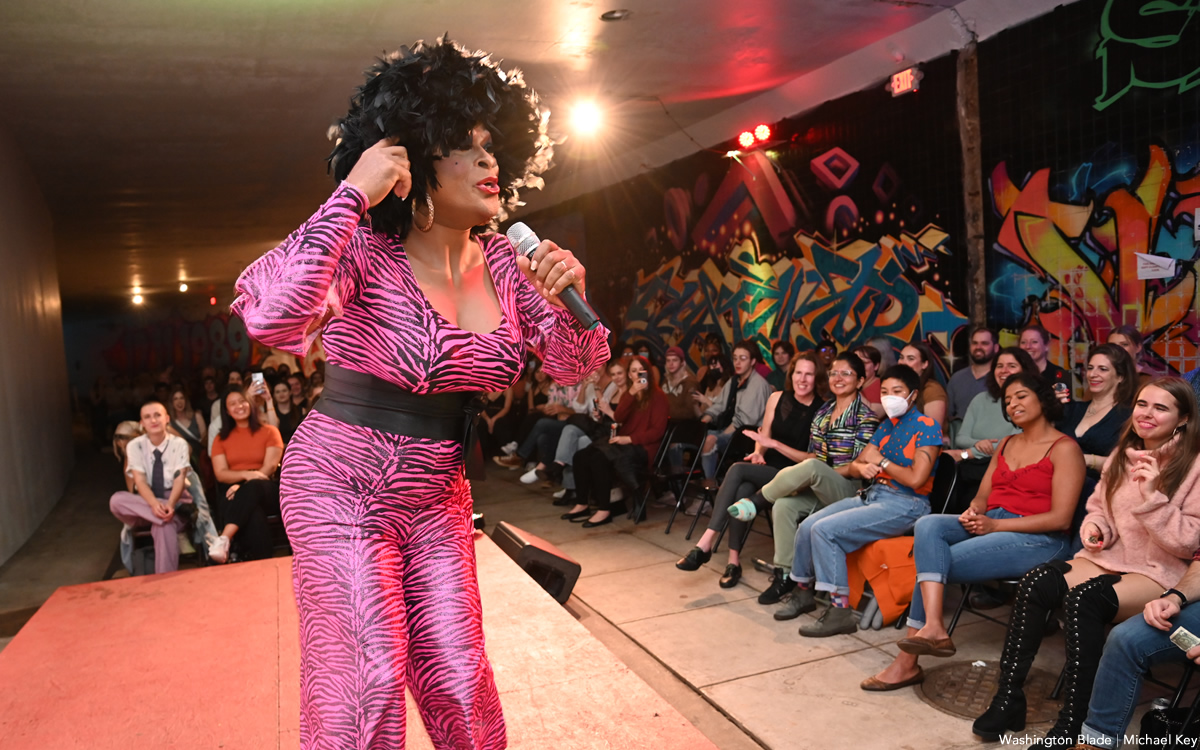
Dupont Underground and the Washington Blade have teamed up to host “Drag Underground” on Friday, April 26 at 7:30 p.m. at Dupont Underground.
Performers include Indiana Bones, Bombalicious Eklaver, Shi-Queeta Lee and Cake Pop.
Tickets start at $15 and can be purchased on Eventbrite.
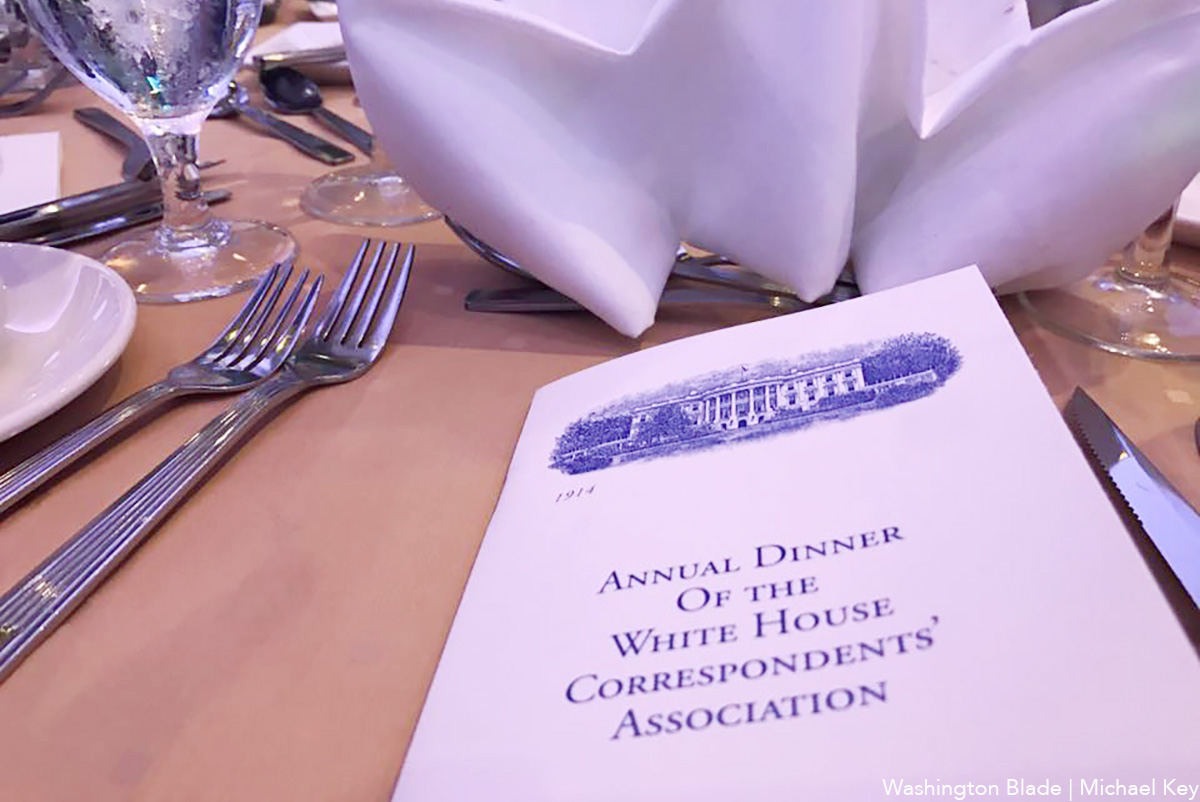
The annual White House Correspondents’ Association Dinner is set for Saturday, April 27 at the Washington Hilton with Colin Jost serving as emcee.
President Biden is scheduled to speak and numerous celebrities are expected around D.C. all weekend for related parties and events.
The Washington Blade is the only LGBTQ outlet that is a member of the Association and is hosting a table of VIPs, including actor Billy Porter and Congressman Robert Garcia (D-Calif.).
“We look forward to the Dinner each year to celebrate our press freedoms and to thank a range of allies and supporters for their work on behalf of the LGBTQ movement,” said Blade Editor Kevin Naff.

Friday, April 26
Center Aging Monthly Luncheon with Yoga & Intergenerational Hangout will be at 12 p.m. at the DC Center for the LGBT Community. Chair yoga will be at noon. Lunch will be provided by the Gay Professional Men of Color at 1 p.m. Guests can bring a beverage of choice. For more information, email [email protected].
Go Gay DC will host “LGBTQ+ Social in the City” at 7 p.m. at Courtyard by Marriott Dupont Circle. This fun weekly event brings the DMV area LGBTQ community, including allies, together for delicious food and conversation. Attendance is free and more details are available on Eventbrite.
Trans Support Group will be at 7 p.m. on Zoom. This group is intended to provide emotionally and physically safe space for trans people and those who may be questioning their gender identity/expression to join together in community and learn from one another. For more details, email [email protected].
Saturday, April 27
Go Gay DC will host “LGBTQ+ Brunch” at 11 a.m. at Freddie’s Beach Bar & Restaurant. Attendance is free and more details are available on Eventbrite.
Sunday, April 28
AfroCode DC will be at 4 p.m. at Decades DC. This event will be an experience of non-stop music, dancing, and good vibes and a crossover of genres and a fusion of cultures. Tickets cost $40 and can be purchased on Eventbrite.
Go Gay DC will host “LGBTQ+ Dinner” at 6:30 p.m. at Federico Ristorante Italiano. This event is ideal for making meaningful new connections and community building or just to unwind and enjoy extended happy hour. Attendance is free and more details are available on Eventbrite.
Monday, April 29
Center Aging: Monday Coffee & Conversation will be at 10 a.m. on Zoom. This is a social hour for older LGBTQ adults. Guests are encouraged to bring a beverage of their choice. For more details, email [email protected].
Tuesday, April 30
Pride on the Patio Events will host “LGBTQ Social Mixer” at 5:30 p.m. at Showroom. Dress is casual, fancy, or comfortable. Guests are encouraged to bring their most authentic self to chat, laugh, and get a little crazy. Admission is free and more details are on Eventbrite.
“5th Tuesdays Open Mic” will be at 8 p.m. at Busboys and Poets at 14th Street, N.W. For two hours, audiences can expect a diverse chorus of voices and a vast array of professional spoken word performers, open mic rookies, and musicians. The event will be hosted by Charity Blackwell. Tickets cost $8 and can be purchased on Eventbrite.
Wednesday, May 1
Job Club will be at 6 p.m. on Zoom. This is a weekly job support program to help job entrants and seekers, including the long-term unemployed, improve self-confidence, motivation, resilience and productivity for effective job searches and networking — allowing participants to move away from being merely “applicants” toward being “candidates.” For more information, email [email protected] or visit thedccenter.org/careers.
Thursday, May 2
Virtual Yoga with Charles M. will be at 7 p.m. on Zoom. This is a free weekly class focusing on yoga, breath work, and meditation. For more details, visit the DC Center for the LGBT Community’s website.
-

 State Department3 days ago
State Department3 days agoState Department releases annual human rights report
-

 Maryland5 days ago
Maryland5 days agoJoe Vogel campaign holds ‘Big Gay Canvass Kickoff’
-

 Politics4 days ago
Politics4 days agoSmithsonian staff concerned about future of LGBTQ programming amid GOP scrutiny
-

 District of Columbia1 day ago
District of Columbia1 day agoCatching up with the asexuals and aromantics of D.C.

